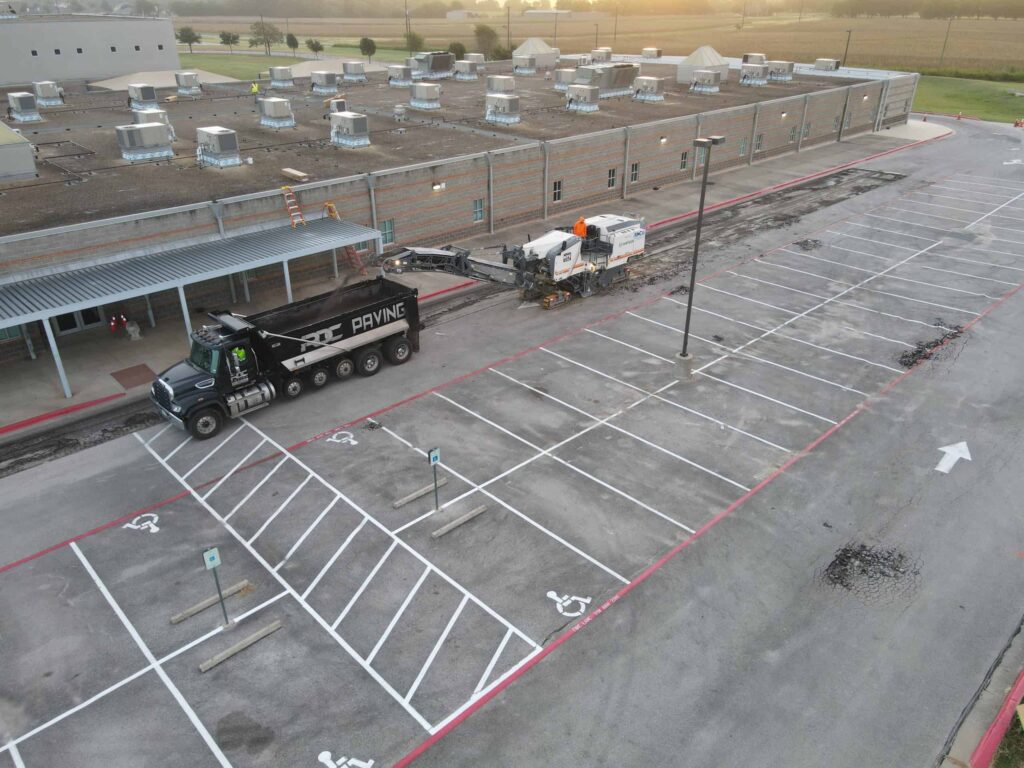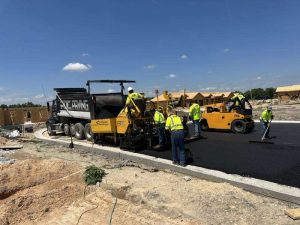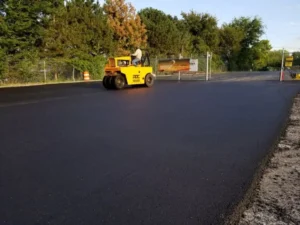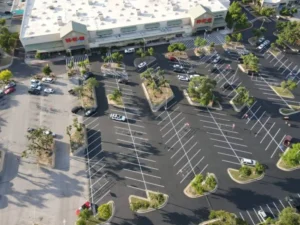Regardless of the type of property you manage, your pavements likely account for a sizable investment on which you would like to achieve a substantial return. This is one reason that an increasing number of property owners are choosing asphalt for their parking lots, nature trails, and other pavements. However, there are certain things that you need to know about the installation, routine care, and repair of asphalt paving.
What Should Property Managers Know About the Installation of Asphalt Paving?
A visually attractive, safe, durable asphalt pavement requires installation by an experienced Austin paving contractor. Installations are typically fast, but your asphalt contractor must not take any shortcuts that could affect the quality or longevity of the finished product. The installation starts with the proper preparation of the ground on which the pavement will be constructed. When paving Austin properties, it is not uncommon to encounter sandy or clayey soils that may be too unstable to allow adequate compaction or provide sufficient support. Depending on the situation, the soil may need to be amended, or the contractor may need to install an aggregate base. The site will also need to be graded correctly to ensure the proper slope. From there, multiple layers of paving asphalt will be placed, worked, and compacted until the pavement has reached the total thickness specified by the engineering design. Mistakes made by an inexperienced or unscrupulous Austin paving company during the installation can leave you with a pavement that will have a short life, require frequent repairs, and negatively impact the curb appeal of your property.
What Should Property Managers Know About the Routine Care of Asphalt Paving?
Asphalt pavements need a certain amount of care to help them shrug off the harmful effects of traffic and the environment. Pavements should be swept periodically to remove accumulations of sand, gravel, decaying vegetation, trash, and other debris. About every two years, an application of sealcoating can help prevent damage from the sun, rejuvenate the pavement’s appearance, and make the pavement easier to clean. Automotive fluids can interact with paving asphalt, creating soft spots that can quickly turn into potholes. Sop up these fluids while they are liquid, then scrub them gently with a degreasing agent to prevent the spots from becoming a crumbly, soft mess. You, a knowledgeable employee, or an Austin paving maintenance contractor should inspect your pavement in the spring and again in the fall to identify and address any small cracks that may have developed before they can turn into something more serious.
What Should Property Managers Know About Repairing Asphalt Pavements?
The longer you delay repairs, the more costly it will be to return your pavement to full functionality. Alligator cracking, potholes, and other openings allow water to reach deep into the pavement, inflicting structural damage at every level. Once the water reaches the foundation, the resulting erosion can severely compromise the integrity of the pavement. Your entire pavement could suffer such extensive damage that the only cost-effective solution is to rebuild it. However, if you can keep the foundation in relatively good condition, you may be able to get the appearance and functionality of a rebuilt pavement without the associated cost through a process known as asphalt resurfacing. Resurfacing involves the application of an asphalt overlay on top of a milled and prepared pavement, and the procedure can usually be repeated as often as needed.
Does RDC Paving Assist Property Managers With Their Austin Paving Needs?
We serve a variety of clients, including property managers, homeowner associations, shopping centers, and apartment complexes. Our services include asphalt and concrete paving, asphalt sealcoating, concrete and asphalt repair, parking lot striping, asphalt driveway paving, asphalt overlay, asphalt crack repair, and asphalt milling. We offer our paving services throughout the Austin metropolitan area, including the towns of Leander, Georgetown, Killeen, Round Rock, San Marcos, Temple, and New Braunfels. We have a remarkable reputation for consistently delivering exceptional work at competitive rates. We offer free quotes, so request yours by calling 512-920-9155; if you prefer, you can fill out our online contact form.
